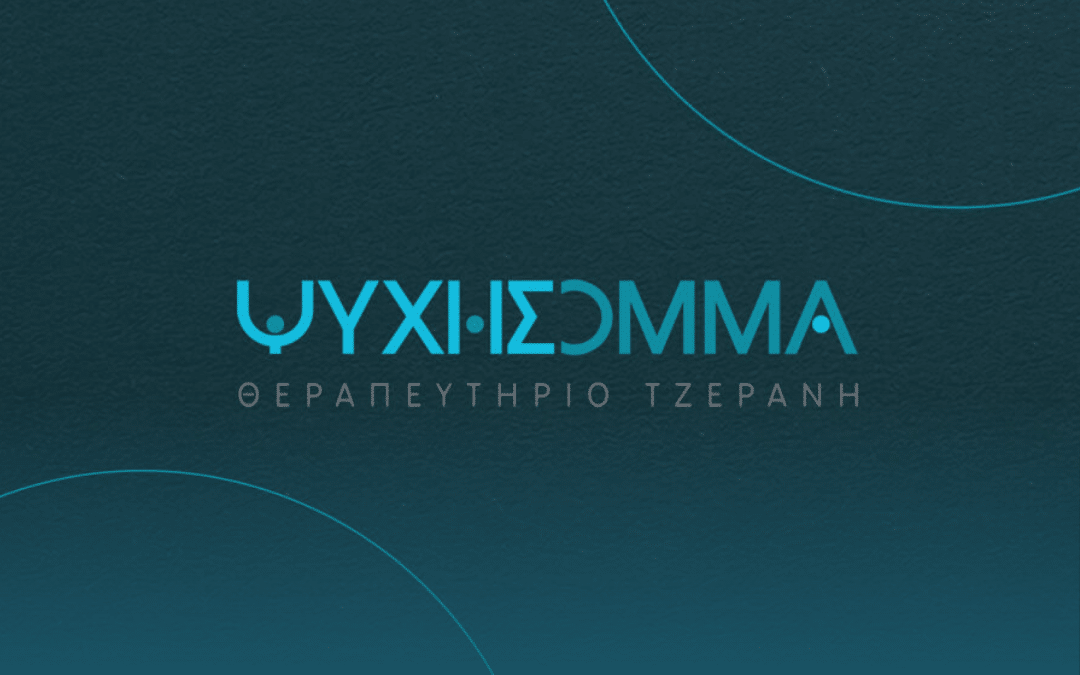
by Thomas Lethenborg | Mar 7, 2022 | News
Monsenso has entered into a partnership agreement with the Greek psychiatric clinic Tzeranis Psychis Omma to deploy the solution in their clinic from Q2 2022 and drive market expansion of the Monsenso solution on the Greek market.
In 2019, 18% of the Greek population was living with a mental illness [1] – since then, the Covid-19 pandemic has led to a significant rise in mental health problems [2]. At the “Meeting of Minds on Quality of Care” conference hosted by WHO/Europe in Athens in December 2021, the necessity to “improve the quality of mental health care for children and adolescents” was emphasised, particularly in light of the Covid 19 pandemic [3]. Greek officials have further highlighted the significance of patient-centricity in mental health services in particular [2].
Psychis Omma has supported individuals with psychological and psychiatric illnesses for over 50 years, aiming at “offering a better life for people suffering from mental disorders, both to themselves and their families” [4]. The clinic provides both inpatient hospitalisation in their facilities in Nea Penteli, close to Athens, as well as (online) psychological support services and external observation [4].
The Monsenso Digital Health Solution will be implemented in Psychis Omma’s clinical practice as a tool to support patients in their treatment pathway and to facilitate early intervention and crisis reduction. Moreover, Psychis Omma Mental Health Solutions will act as a partner of Monsenso in Greece, advocating for the benefits of using digital support tools in mental health settings and actively marketing the Monsenso solution on the Greek market.
The Monsenso app for individuals helps patients to keep track of their well-being, symptoms, and medication intake through self-reported data, as well as their behaviour through sensor data collected on mobile phones. The historical data is visualised and helps individuals remember how they have been doing, e.g. between support sessions. It also helps them gain better insight into the behaviours that trigger their symptoms, empowering them to better manage their condition. Healthcare providers access the user data via a web portal for professionals, enabling them to see fluctuations in the mental state of the patients. This can help to predict relevant outcomes and reduce potential relapses and readmissions.
“We are excited to bring the Monsenso Solution to Greece and work with Psychis Omma as a partner who values enabling people with mental illnesses to live better, more independent lives as highly as we do.”, says Thomas Lethenborg, CEO of Monsenso.
“We are looking forward to working with Monsenso as a partner in Greece and to using their digital health solution to offer improved treatment support to more patients. Remote patient monitoring will open new doors to us in terms of our capabilities to actively support individuals outside of treatment sessions.”, says Spyros Tzeranis, Scientific Director of Tzeranis Psychis Omma.
About Tzeranis Psychis Omma
Tzeranis Psychis Omma is a Greek Neuropsychiatric Clinic founded in 1971, providing specialist health services and supporting individuals with various psychological and psychiatric illnesses. Working with highly experienced and trained nursing and medical staff, the clinic offering both inpatient care and external psychological support aims at enabling more individuals suffering from mental illness to live better lifes.
To learn more visit tzeranis.gr.
About Monsenso
Monsenso is an innovative technology company offering a digital health solution used for decentralised trials, remote patient monitoring and treatment support. Our mission is to contribute to improved health for more people at lower costs by supporting treatment digitally and leveraging patient-reported outcomes data. Our solution helps optimise the treatment and gives a detailed overview of an individual’s health through the collection of outcome, adherence, and behavioural data. It connects individuals, carers, and health care providers to enable personalised treatment, remote care, and early intervention. We collaborate with health and social care, pharmaceuticals, and leading researcher worldwide in our endeavours to deliver solutions that fit into the life of patients and health care professionals. To learn more visit www.monsenso.com.
[1] Stewart, C. (2021). Europe: mental disorders among adolescents in 2019, by country. Statista. https://www-statista-com.esc-web.lib.cbs.dk:8443/statistics/1273254/mental-disorders-among-adolescents-in-europe-by-country/
[2] WHO (2021). Athens Mental Health Summit – Ministers and representatives renew commitment to prioritize mental health in the WHO European Region.
https://www.euro.who.int/en/countries/greece/news/news/2021/8/athens-mental-health-summit-ministers-and-representatives-renew-commitment-to-prioritize-mental-health-in-the-who-european-region
[3] WHO (2021). WHO/Europe and Greece put quality of care at the top of the health agenda. https://www.euro.who.int/en/countries/greece/news/news/2021/12/whoeurope-and-greece-put-quality-of-care-at-the-top-of-the-health-agenda
[4] Psychis Omma Tzeranis Clinic (n.d.). Our Clinic. https://tzeranis.gr/en/our-clinic/
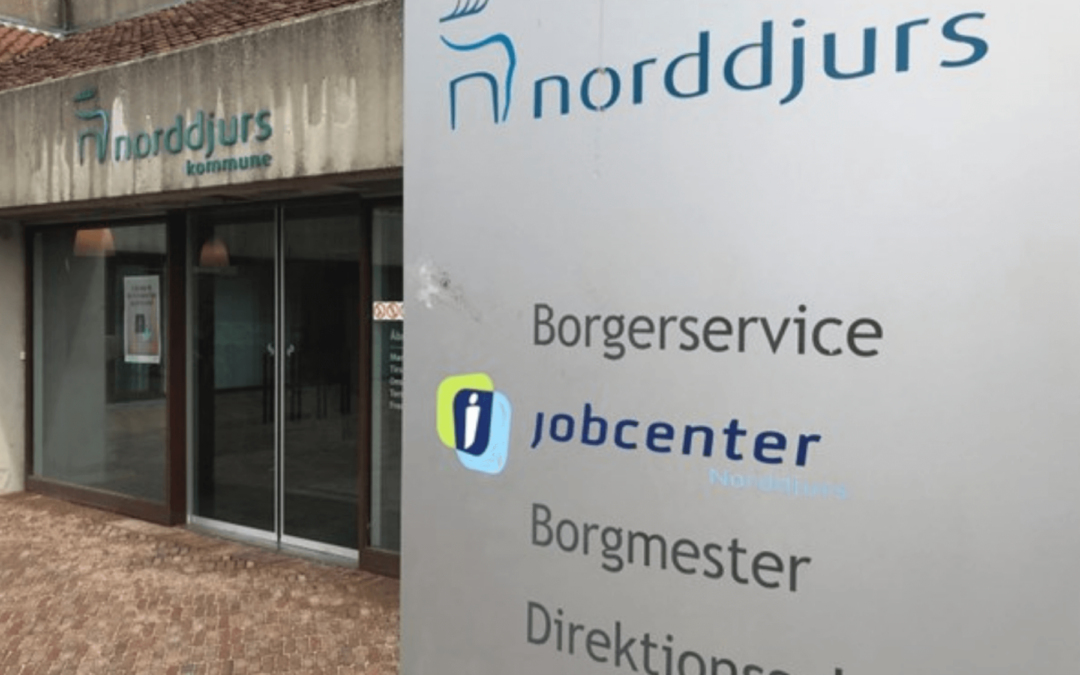
by Thomas Lethenborg | Jan 28, 2022 | News
Norddjurs Municipality in the Central Jutland region joins the successful Return-to-Work program, facilitated by several partners including Empano, Sundinvest, Den Sociale Kapitalfond, AS3, PWC and supported by Monsenso’s digital health solution. From February 2022, Monsenso’s digital health solution will be deployed in Norddjurs Municipality to support individuals during their return-to-work process, while collecting real-world insights on outcomes.
The impact of COVID -19 on social care.
The disruption or shutdown of critical mental health services during the COVID -19 pandemic has led to the rapid adoption of technology-enabled care (TEC) in both health care and adult social care (ASC). Today, there is no doubt that digital technologies offer the potential to improve social care, from targeting resources where they are most needed to promote independence in the community through remote care and treatment support.
Commissioning beyond COVID -19
The adoption of technology-enabled care (TEC) also provides an opportunity to move towards a more person-centered and evidence-based model of commissioning that focuses on service delivery outcomes.
Three forward-thinking municipalities in Denmark implement an outcome-based back-to-work service provided by Empano and Monsenso
To date, two forward-thinking municipalities in Denmark (Guldborgsund and Slagelse) have implemented an outcome-based back-to-work service provided by Empano and Monsenso.
The back-to-work services are designed to help citizens with mental illness return to the labour market faster and consist of coping and motivational courses provided by Empano, offered in conjunction with the Monsenso digital health solution for remote treatment support and real wold data collection on outcomes to validate and demonstrate program effectiveness.
Since February 2022, Norddjurs municipality in the Central Jutland region has also joined the successful program and more municipalities are expected to follow during the year.
About Monsenso
Monsenso is an innovative technology company offering a digital health solution used for decentralised trials, remote patient monitoring and treatment support. Our mission is to contribute to improved health for more people at lower costs by supporting treatment digitally and leveraging patient-reported outcomes data. Our solution helps optimise the treatment and gives a detailed overview of an individual’s health through the collection of outcome, adherence, and behavioural data. It connects individuals, carers, and health care providers to enable personalised treatment, remote care, and early intervention. We collaborate with health and social care, pharmaceuticals, and leading researcher worldwide in our endeavours to deliver solutions that fit into the life of patients and health care professionals. To learn more visit www.monsenso.com.
To learn more, visit www.monsenso.com
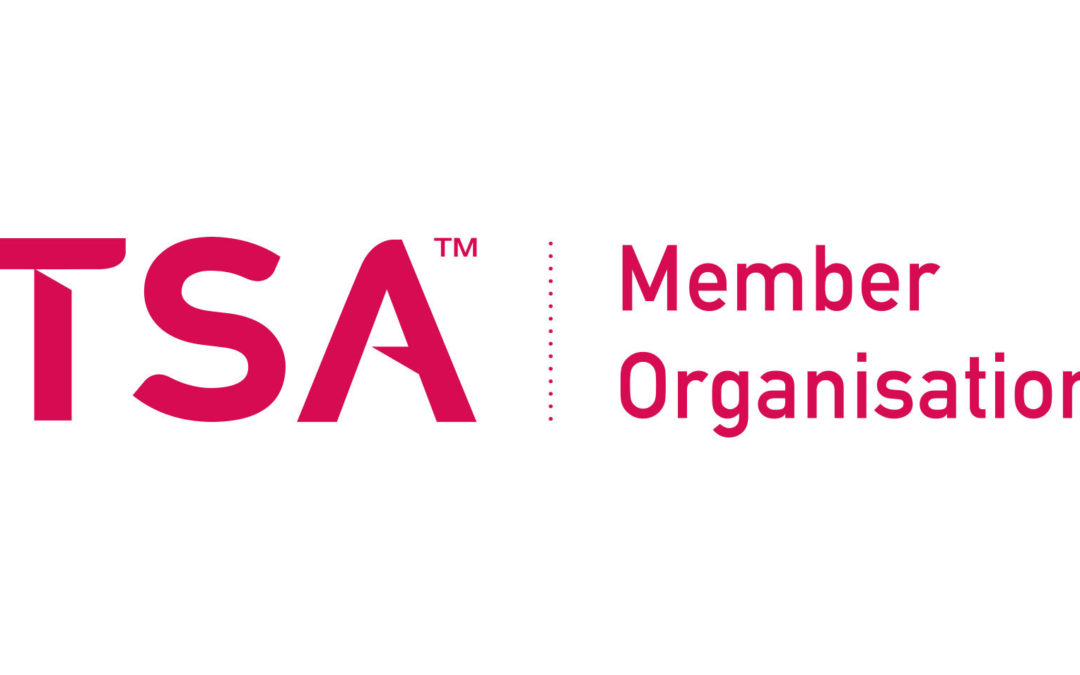
by Thomas Lethenborg | Jun 15, 2021 | News
Monsenso A/S, a leading provider of digital health solutions for mental health, joins TSA, the trade association for Technology Enabled Care (TEC), representing the largest sector-specific network in Europe and bringing together a growing number of organisations from local government, healthcare and the private sector.
TSA promotes and supports the technology-enabled care sector to health and social care commissioners, service users, their families and carers, including organising the annual International Technology Enabled Care Conference and promoting quality across the sector through its internationally recognised Integrated Code of Practice.
“We are delighted to become a member of TSA” Thomas Lethenborg, CEO of Monsenso, commented. “Working across NHS and social care, TSA will be a strong partner in our expansion in Europe and the UK.”
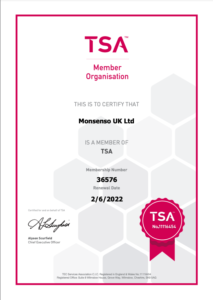
www.tsa-voice.org.uk / @TSAvoice
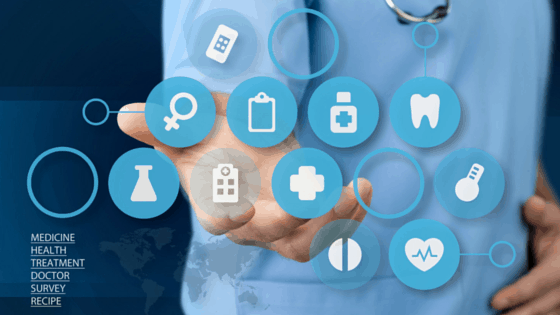
by Thomas Lethenborg | Jun 17, 2020 | Blog
Connected health or technology-enabled care (TEC) is the collective term used for telecare, telehealth, telemedicine, mHealth, digital health, and eHealth services. TEC is now seen as a fundamental part of the solution to solve many healthcare challenges.
TEC helps people self-manage their health and wellbeing, alert healthcare professionals in case of any changes in an individual’s condition and support medication adherence.
It also helps clinicians and care providers deliver more efficient and cost-effective care.
Digital technology is advancing exponentially, and its cost is becoming more affordable. The need for more cost-effective healthcare is rising. Now more than ever, healthcare authorities need to adopt new technologies to help meet this demand.
Key trends
An aging population
The population is increasing, and people are living longer. These two factors, in addition to a rise in chronic conditions, present new healthcare challenges.
In the United States, population projection reports that older adults currently make up about 15% of the population, and by the year 2060 is estimated to amount to 23.5%.
There are similar numbers reported for Europe, where the group of 65-year old or older make up 19% of the population and is predicted to amount to 29% of the total population by the year 2080.
Use of mobile devices is increasing amongst all age groups
A 2019 report conducted by Provision Living, a senior living community in the U.S., revealed that on average, Baby Boomers (born between 1946 and 1964) and millennials (born between 1981 and 1995) spend on average, five hours a day on their smartphones.
Smartphone adoption among Americans:
- Aged 50 to 59 is 86%
- Aged 60 to 69 is 81%
- Aged 70+ is 62%
Other market drivers
The demand for apps and wearable devices is also being driven by an increased focus on personalised care. Large pharmaceutical companies are now using apps and wearables to gather valuable health-related patient data, support their research, and provide an holistic service to patients.
In 2014, the leading pharmaceutical companies had an increase of 63 % in unique apps compared to 2013. In just one year, the total number of downloads of pharmaceutical apps increased by 197% as shown in Figure 1. These apps deliver education and training, can titrate medication and monitor compliance.
Figure 1. The number of apps published by leading pharmaceutical companies, 2013 and 2014.
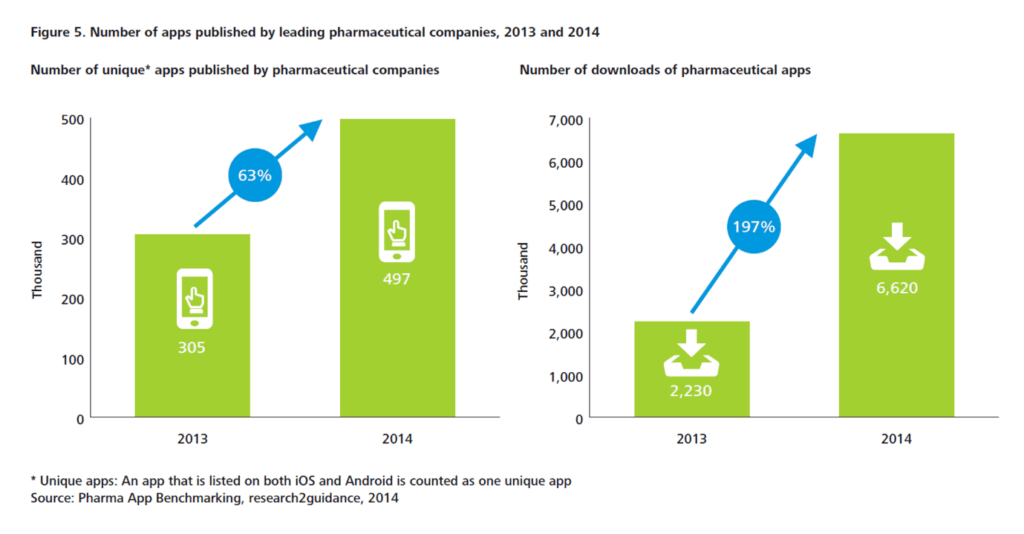
There has also been an increase in online patient communities, using social media as a platform to exchange experiences with patients and carers.
Increasing patient trust in health apps
There is strong evidence that patients are now more than ever concerned about self-care, and they are interested in boosting their health and wellbeing. In addition to this, health technology companies are working to improve the quality of apps, increase user confidence and trust, and launch informed decision-making in app selection for health professionals, patients and the public.
Agencies like the US Food and Drug Administration (FDA), or NHS Choices and its NHS Health Apps Library have developed criteria that judge apps for safety and technical proficiency. For example, for apps to be included on the NHS Choices search website, which in early 2015 lists around 150 apps, they must be reviewed by a technical team (testing relevance, legal compliance and data protection), then by a clinical team (to test scientific rigour).
PatientView is an independent organisation that has developed a systematic method of appraising health apps. Until April 2015, there were 363 apps recommended for the Apple platform and 236 for Android, with smaller numbers recommended for use on other platforms.
In 2014, PatientView undertook a survey of 1,130 patient group members to identify what people want from health apps as shown in Figure 2.
Figure 2. What do patients and carers want from health apps?
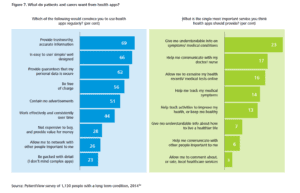
References:
Connected Health: How Digital technology is transforming health and social care. Deloitte Health.
Forget Generational Stereotypes, Baby Boomers Are Just As Addicted To Smart Phones As Millennials.
Older Adults Keep Pace on Tech Usage.
An Aging Population, Larger Chronic Disease Burden, and Reliance on Digital Self-Management Tools Require Contributions from Nurse Informaticians.

by Thomas Lethenborg | Dec 15, 2015 | mHealth, Patient Engagement
Earlier this year, Deloitte published a report titled “Connected Health: How Digital technology is transforming health and social care.” The information on this blog post has been obtained from this report.
Connected health or technology-enabled care (TEC) is the collective term used for telecare, telehealth, telemedicine, mHealth, digital health, and eHealth services. TEC is now seen as a fundamental part of the solution to solve many healthcare challenges. TEC helps people self-manage their health and well-being, alert healthcare professionals in case of any changes in an individual’s condition and support medication adherence. It also helps clinicians and care providers deliver more efficient and cost-effective care.
Digital technology is advancing exponentially, and its cost is becoming more and more affordable. At the same time, the demand for more cost-effective healthcare is rising. Now more than ever, healthcare authorities need to adopt new technologies to help meet these challenges.
An aging population
In the UK, as in other parts of the world, the population is increasing, and people are living longer. These two factors, in addition to a rise in chronic conditions, present new healthcare challenges.
Over 25% of the population in the UK are affected by a chronic condition, and an increasing number have multiple conditions. It has been appraised that people with long-term conditions use up to 50% of all GP appointments and 70% of days spent in hospital beds. It has also been estimated that their care absorbs 70% of hospital and primary care budgets in England.
Use of mobile devices is increasing amongst all age groups
Although ownership of smartphones and tablets is growing rapidly, the older population, who are the largest users of health and social care services, hadn’t adopted this technology until now. However, in 2014, baby boomers generated the fastest year-on-year growth in smartphone penetration.
Additionally, smartphone owners are encouraged to exercise, lose weight and improve their health, with the help of numerous mobile health apps.
Other market drivers
The demand for apps and wearable devices is also being driven by an increased focus on personalised care. Large pharmaceutical companies are now using apps and wearables to gather valuable health-related patient data, support their research, and provide an holistic service to patients.
In 2014, the leading pharmaceutical companies had an increase of 63 % in unique apps compared to 2013. In just one year, the total number of downloads of pharmaceutical apps increased by 197% as shown in Figure 1. These apps deliver education and training, can titrate medication and monitor compliance.
Figure 1. The number of apps published by leading pharmaceutical companies, 2013 and 2014.

There has also been an increase in on-line patient communities, using social media as a platform to exchange experiences with patients and carers.
Increasing patient trust in health apps
There is strong evidence that patients are now more than ever concerned about self-care, and they are interested in boosting their health and well-being. In addition to this, health technology companies are working to improve the quality of apps, increase user confidence and trust, and launch informed decision-making in app selection for health professionals, patients and the public.
Agencies like the US Food and Drug Administration (FDA), or NHS Choices and its NHS Health Apps Library have developed criteria that judge apps for safety and technical proficiency. For example, for apps to be included on the NHS Choices search website, which in early 2015 lists around 150 apps, they must be reviewed by a technical team (testing relevance, legal compliance and data protection), then by a clinical team (to test scientific rigour).
PatientView is an independent organisation that has developed a systematic method of appraising health apps. Until April 2015, there were 363 apps recommended for the Apple platform and 236 for Android, with smaller numbers recommended for use on other platforms.
In 2014, PatientView undertook a survey of 1,130 patient group members to identify what people want from health apps as shown in Figure 2.
Figure 2. What do patients and carers want from health apps?

Reference:
Connected Health: How Digital technology is transforming health and social care. Deloitte Health. http://www2.deloitte.com/content/dam/Deloitte/uk/Documents/life-sciences-health-care/deloitte-uk-connected-health.pdf









